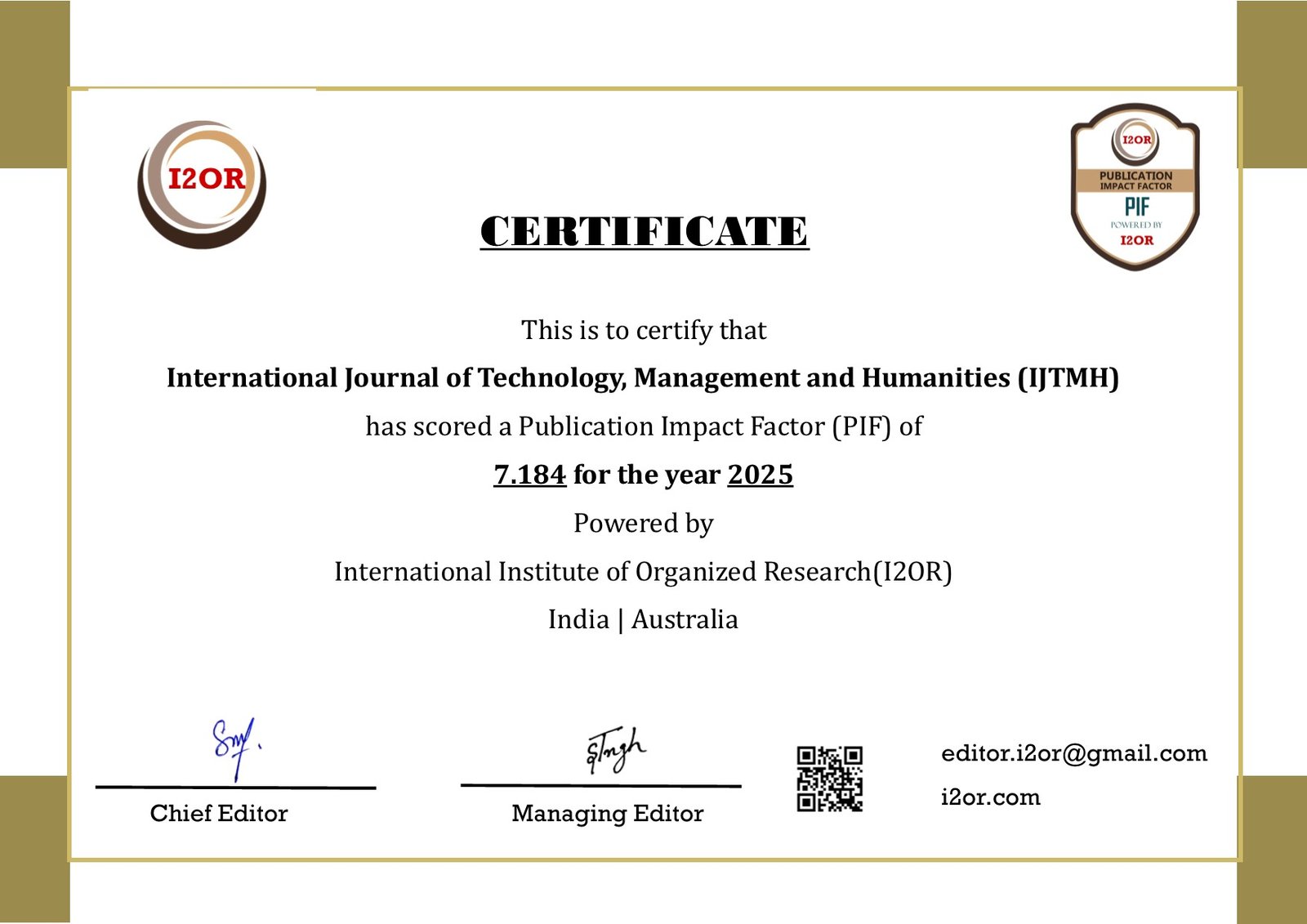Role of Enterprise Architecture in Adoption of AI in Enterprises
DOI:
https://doi.org/10.21590/Keywords:
Enterprise Architecture, Artificial Intelligence, Digital Transformation, IT-Business Alignment, AI Integration, Organizational Strategy, Technological Innovation]Abstract
The fast development of the Artificial Intelligence (AI) technologies has changed the ways the enterprise works, makes decisions and forms the value. Nevertheless, a systematic implementation of AI in businesses needs to be adopted on a methodology that integrates technological strengths with business strategy. Enterprise Architecture (EA) can be regarded as one of the key facilitators in this process, as it provides a full-fledged framework to enable a seamless incorporation of AI solutions into the current organizational systems. In this paper, the discussion will focus on how EA can enable the adoption of AI through the provision of governance infrastructure, interoperability, data management design, and alignment of IT and business goals. It brings out the role of EA frameworks, including the TOGAF and Zachman, in facilitating organizations to address issues associated with scalability, data silos and integration of legacy systems. Moreover, the paper highlights the need to tie AI efforts with enterprise architecture concepts in order to achieve agility, transparency, and long-term sustainability. Combining the use of architecture-driven design and AI innovation, companies will obtain operational excellence, decision intelligence, and competitive advantage.







